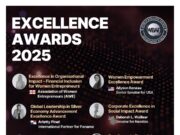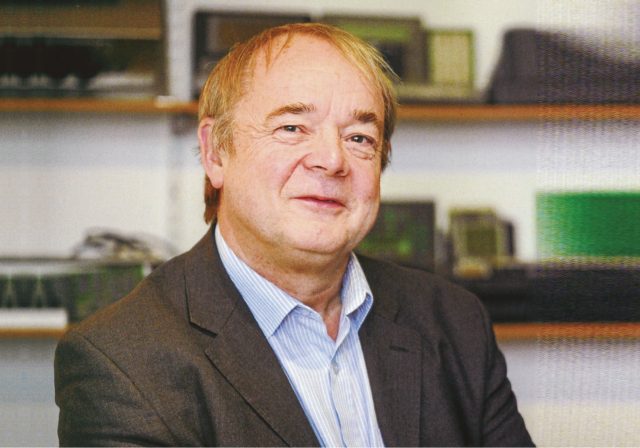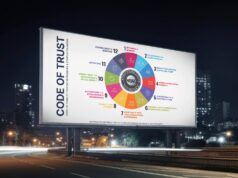With over forty years experience in the world of investment, Peter Cowley knows what it
takes to ride the investment rollercoaster; success and failure are part of the learning
curve but he has weathered the storms and has found a satisfying balance in his life.
Can you tell us a bit about yourself?
I had a good technology education in England. I have two adult children, plus three stepchildren from my second marriage and I live in Cambridge, UK, but have a home in the French Pyrenees. I regularly ski, fell-walk and play squash, as well as an unusual game called “real tennis” where, throughout the world, 6000 players play on a total of only 43 courts.
How did you start? What was your entrepreneurial journey?
Between school and University, I spent six months in Sydney, and by chance worked for the most famous entrepreneur in Australia – in retail electronics. Much of his enthusiasm and zaniness rubbed off on me. After University, and 3 years at a software consultancy, I joined a small company in Bavaria, Germany. That was sold and I founded my first company, Gercom in 1981. Returning to the UK when our first son was born, I founded Camdata, which I still own and run. Over the next 25 years I founded several technology and property companies (with a mixture of success and failure), which has given me vast experience in all aspects of building start-ups.
How did you get into angel investing?
In 2006, I made my first angel investment, which soon exited for a good multiple, which gave me an appetite for helping start-ups without being the founder. I was very lucky to have been able to join the most distinguished and active technology angel investment club in the UK – the Cambridge Angels, where I am now chair. Being in close proximity to 50+ experienced angels gave me access to deals, a wonderfully diverse education and confidence.
How has that journey been?
Over the last 7 years, I have invested in over 55 companies, with 5 failures and 5 returning cash to shareholders. Almost exclusively I invest in Business to Business, which take longer to grow, but are also slower to fail. Although I am nowhere near having as much cash out as I’ve invested, based on standard VC rules, I am sitting on a 3X value increase, which looks likely to be 4X by late 2017. I have publically stated that if I get just £1 more back than the total I invested then the journey will have been so worthwhile because of the satisfaction, enjoyment and learning I am getting from the entrepreneurs.
What makes a good potential investment?
There is no formula for angel investing (apart from ensuring a portfolio of more than 10 investments) and every angel’s sweet spot is different. So, like everything in life, I have developed my ideas over the years and now have a set of 16 rules, which I have published on my website: www.petercowley.org/ investment-criteria/. These are based on what I enjoy, what I understand, what I can contribute to, and, of course, experience. When I give talks, my “war stories” slides get more numerous! The most important rules are having a great team of 2 or 3 founders, B2B or B2B2C, defensible technology, early stage, UKbased and an investor director I trust.
You also run a corporate VC?
In 2011 I helped setup and run Martlet, which is the early stage investment arm of a £2bn revenue, 5000-person, family-owned engineering company in Cambridge. We have invested over £5M in 40 companies. Martlet is a “Corporate Angel” as we invest in very early stage (compared with most other Corporate VCs) and we don’t require synergy with the corporate.
“There is no formula
for angel investing and
every angel’s sweet spot
is different.”
What has been the most challenging event of your professional life so far? And how did you overcome it?
I have had one corporate failure – I was founder, majority shareholder and CEO and that was very difficult, as we failed, I had to make staff, who had become friends, redundant, had to ensure pressure from creditors and banks and my confidence and experience was severely taxed. This was during the early 1990s global recession. I resurrected the company and have run it as a small life-style business ever since.
We hear that you have many work balls in the air – how many and how do you manage?
I am on the board of eight startups, I run Martlet (with help), I run my own tiny technology company, I am a fellow in entrepreneurship at the Cambridge University Judge Management School, I am chair of the Cambridge Angels, I am on the investment committee of the £100M UK government angel co-investment fund, I have a regular technology slot on the BBC and speak IMAGE KEITH HEPPELL (with thanks to cambridge business) at angel events throughout Europe, and I have a life! Family, sport, bridge and extensive travelling around the world. None of this would be possible without a very understanding wife (who is FC of a Cambridge start-up that has already raised $250M) and a lot of technology and connectivity!
Why is the UK so strong in supporting and growing start-ups?
This is a combination of government policy, starting over 20 years ago, to move the UK from manufacturing and out North Sea Oil to a knowledge economy, the fact that we speak English and can act as a springboard into other markets (especially America), the British have been quick on the uptake of digital solutions and the cosmopolitan lifestyle in London attracts young people. Apart from that, the support ecosystem from exited entrepreneurs is strong, the tax advantages for angel investors means that early stage funding is plentiful and we probably have more exits than other countries.
What advice do you have for young entrepreneurs?
The letter P is often used to describe what makes a good opportunity, perhaps: People, Problem, Passion, Plan, Perseverance, Pivot (or re-Plan), Patience and Pleasure. But the two factors that make such a difference for me are to Listen (to the market, to investors, to customers, to suppliers, to staff) and not to Lie (whether a soft or white lie, or a blatant untruth, either will damage a relationship when discovered, before or, worse, after investment)
Last word?
Like most entrepreneurs, I have a varied life, with many ups and many downs, plus some difficult family tragedies. However, it appears to me that my current life is a “calling” and that my 40 years’ experience was “designed” to educate and help entrepreneurs build successful businesses, making as few mistakes as possible. I suspect, only health can slow down my current journey.














